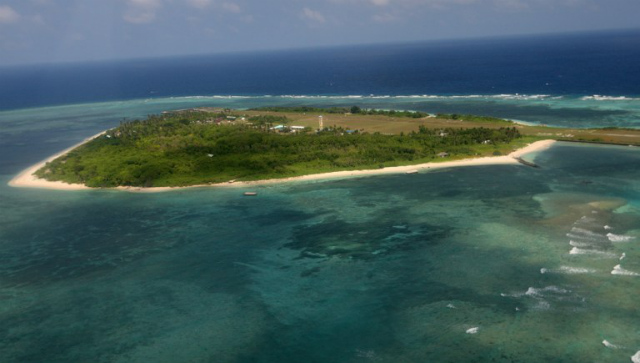SUMMARY
This is AI generated summarization, which may have errors. For context, always refer to the full article.

MANILA, Philippines – Like the Philippines, Taiwan rejected China’s new fisheries law on Monday, January 13. At the same time, however, it dismissed Manila’s claim over the disputed South China Sea.
Taiwan, which calls itself the Republic of China (ROC), stood firm in claiming the Spratly Islands 3 days after the Philippines slammed the Chinese law. The policy requires foreigners to seek China’s permission to fish in the disputed sea.
In a statement by the Taipei Economic and Cultural Office in the Philippines, Taiwan said the Spratly Islands (Nansha Islands), Paracel Islands (Shisha Islands), Macclesfield Islands (Chungsha Islands), and Pratas Islands (Tungsha Islands) all belong to “the sovereignty of the ROC government.”
The claim covers all “their surrounding waters and respective seabed and subsoil.” This is based on “the perspectives of history, geography, and international law.”
“Therefore, the ROC government reasserts that it enjoys all rights over the islands and their surrounding waters, and thus its official and private vessels should also enjoy freedom of navigation and operation in the said waters. Furthermore, it cannot accept any claim of sovereignty over, occupation, or legitimate regulation of these areas by other countries or territories,” Taiwan said.
The Philippines, on the other hand, asserted its claim over the Spratlys as well as other portions of the sea, which it calls the West Philippine Sea. It filed a historic case against China over this in 2013. (READ: PH lawyer on China: Being ‘int’l outlaw’ has its price)
Joint exploration
In its statement, Taiwan also urged countries “bordering the islands,” such as the Philippines, “to respect the principles and spirit” of the United Nations Charter and the United Nations Convention on the Law of the Sea (UNCLOS). It also requested them “to refrain from adopting unilateral measures that might upset the peace and stability of the region and the South China Sea.”
In place of unilateral measures, Taiwan broached the idea of joint exploration. It said it “upholds the basic principles of ‘safeguarding sovereignty, shelving disputes, peace and reciprocity, and joint exploration’ and remains willing to work with other countries in exploring the resources of the South China Sea.”
“The ROC government also urges the countries bordering the South China Sea to exercise self-constraint so that peaceful resolutions to South China Sea disputes can be reached through consultation and dialogue. The ROC government remains willing to participate in dialogue aiming to form resolutions to disputes and promote regional peace, stability, and freedom of navigation,” Taiwan added.
The Philippines, for its part, said it has requested China “to immediately clarify” the new fisheries law that the Hainan Provincial People’s Congress issued.
“We are gravely concerned by this new regulation that would require foreign fishing vessels to obtain approval from Chinese regional authorities before fishing or surveying in a large portion of the South China Sea,” the Philippines’ Department of Foreign Affairs (DFA) said in a statement Friday, January 10.
“This development escalates tensions, unnecessarily complicates the situation in the South China Sea, and threatens the peace and stability of the region,” the DFA added. – Rappler.com
Add a comment
How does this make you feel?
There are no comments yet. Add your comment to start the conversation.